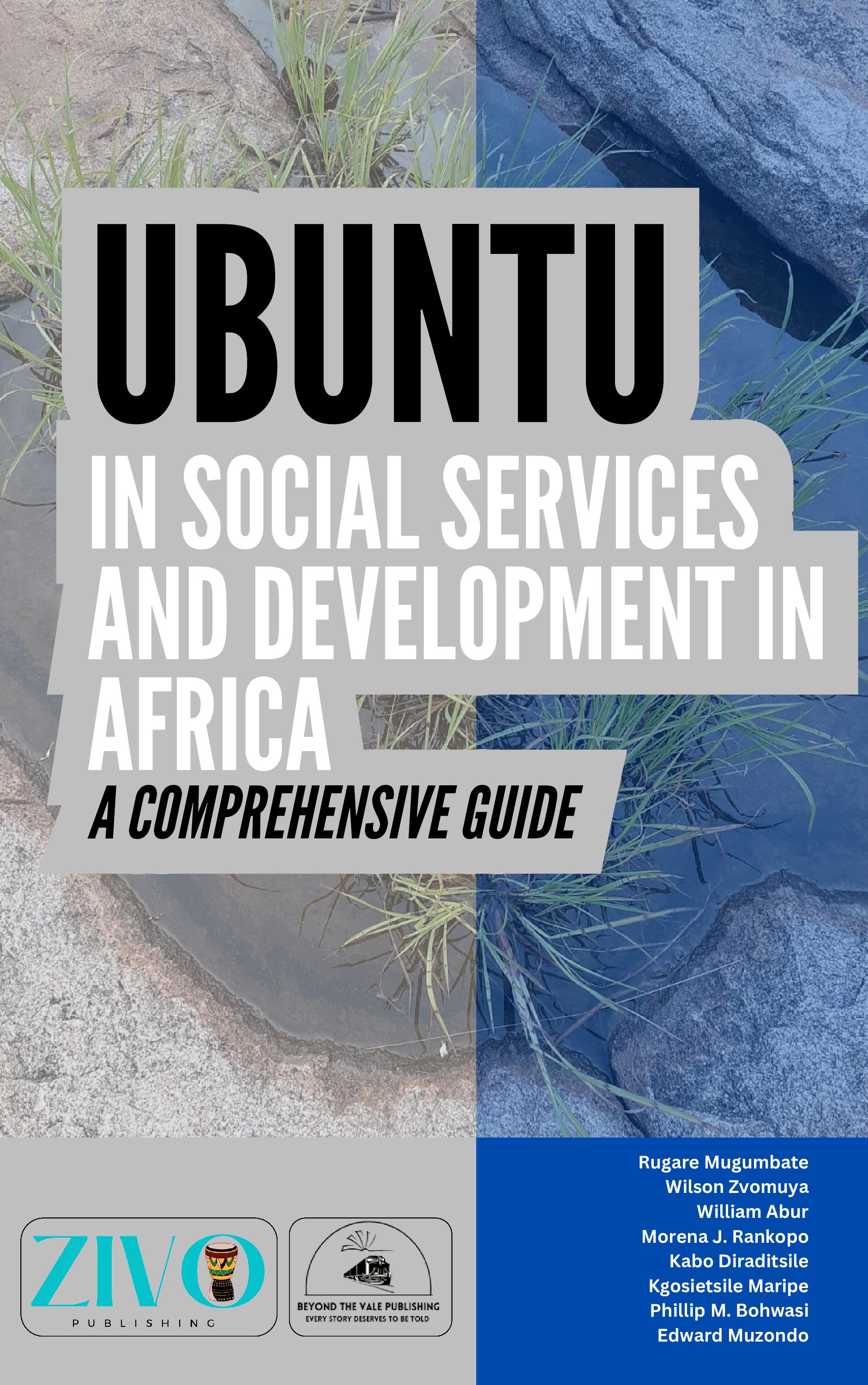
Ubuntu in Social Services and Development in Africa (TEST – DO NOT BUY)
Keywords: Africa Country: Beyond the Vale, SA Article Number: 978-1-77933-750-4 Number of pages: 246 Other language: English Size: 38mbKaribu. Mauya. Wamkelekile. እንኳን ደህና መጣህ. Olandiridwa. Barka. Murakaza neza. Amohelehile. Siyalemukela. Tukusanyukide. O amogelesegile. Luɔɔr, Greetings reader and welcome. You might be a lecturer, a tutor, a student, a practitioner, or a researcher, we want to welcome you to this book which is available in different formats. Innovations in technology have resulted in many options for publishing. This book appears as a printed hard copy and a softcopy (ebook). We have provided all these options to ensure this book is easily accessible. In writing this book, our major aims were to address the lack of relevant textbooks in Africa and promote use of Africa’s knowledges in social services and development. The authors’ experience of having to use literature from outside Africa for their training was a motivation for this book. This book therefore addresses the needs of librarians who have very limited textbooks from Africa to order, lecturers and tutors who have limited options of African textbooks to use as their references during their lectures, lessons, tutorials or seminars and students who have very limited local textbooks to read. The important and major features of this book are:
- It focuses on a range of social service professions – social workers, development workers, community workers, counsellors, psychologists, social welfare workers, social development workers, cultural services workers, and social administrators
- It is suitable at all levels of tertiary education – certificate, diploma, bachelor, master and doctoral
- It is suitable for lecturers, tutors, students, researchers, and fieldwork educators
- It focuses on skills required for practice in Africa
- It is a decolonised guide
- Focuses on the family and community, the individual is viewed through the family
- It has chapters on philosophy, ethics, and theories in social services
- There is a chapter on the diaspora of Africa
- All writers are Africans
- 90% of literature cited in this book is from Africa
- At the end of each chapter, there are questions, activities, and ideas for assessments, research and fieldwork.
- A glossary of terms is provided at the end of the book
- A list of used and recommended references is provided at the end of the book
- A comprehensive index is provided at the end of the book
- The book offers skills that could be applied anywhere in Africa and are transferable globally
- It provides comprehensive guidance on how to use Ubuntu
These are the several ways to use this book:
- List the book in the course or subject outline as an essential textbook or reference book
- Give students specific pages or chapters as a reading in the course or subject outline
- Use images and illustrations in your presentations
- Use case studies for teaching
- Copy and use assignment and examination questions
- Copy and use questions for research
- Copy and use ideas for fieldwork
- Use as a reference guide during fieldwork supervision
- Use as a reference for literature review
Appendices at the end of the book were carefully selected, and they provide detailed information about Ubuntu, including misconceptions, strengths and shortcomings; Umoja waAfrica (African Union) and research approaches, designs, and methods for Africa. No doubt, readers will find these useful.
Back